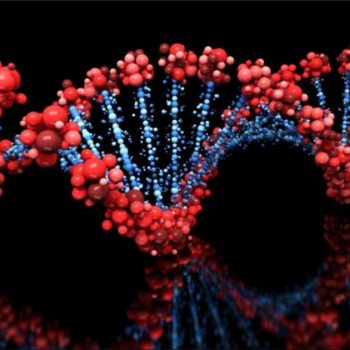

If you’re just joining in to my Explaining Genetics series, I highly recommend starting with the first article in the series, Explaining Genetics Part 1: Genetics vs. Nutrigenomics.
Most recently, interpretation of genetic variants has become popular amongst many of my patients. Even ESPN runs commercials for 23andMe testing to learn your ancestry but also your genes. As a health provider, I am most interested in nutrigenomics, scientific study of the interaction of nutrition and genes, because that is what we can change and alter to provide you the support you need to be as healthy as possible.
I take my patients 23andMe data and run this through an interpretation site for health providers to learn what single nucleotide polymorphisms (SNPs) they have. These are “swaps” at the middle portion of the gene ladder. That swap is a change; it’s irregular and not normal. SNPs are what I refer to in Chapter 3 of my book Your Longevity Blueprint as genetic variants. Currently the most common SNPS my patients ask about are the methylenetetrahydrofolate reductase (MTHFR) variants.
Methylation (adding a methyl CH3 group to another molecule) helps regulate gene expression, build neurotransmitters, process chemicals and toxins, produce energy, and reduce the amino acid homocysteine. Methylation variants like MTHFR SNPs may be very important for many reasons. The MTHFR gene provides instructions for making the methylenetetrahydrofolate reductase enzyme, which is required for the body to convert homocysteine to methionine. The more MTHFR variants you have, the greater likelihood your enzyme function is very impaired, which means you can’t convert homocysteine to methionine. Thus, homocysteine can build up, increasing cardiovascular risk.
The top two commonly seen variations are A1298C and C677T. We are seeing more of these variations and we are also seeing more infertility and autism. Could there be an association here? This variant is also associated with mental illness, addictions, cancer, and cardiovascular disease-related deaths. MTHFR is the predominant enzyme that converts folic acid/folate to its active form (methylfolate) needed for synthesis of serotonin, dopamine, and norepinephrine.
It’s possible that fortifying foods with folic acid has been very dangerous for these individuals. Folic acid is not helpful, because these individuals can’t utilize it. In fact, it attaches itself to the same receptor in the body used to absorb folate, so it basically further reduces folate status. These individuals need actual folate found in nature—not folic acid, which is synthetic.
It has been proven that folate status during pregnancy is crucial to the development of the child. Recommendations for 400 mcg folic acid were created based on the average woman with average genes. Women of childbearing years with genetic variants A1298C and C677T should avoid folic acid and instead take methylfolate or folate. You may need 1,000 to 4,000 mcg or even more, pending your levels. MTHFR has also been associated with tongue and lip ties, and miscarriages. MTHFR variants have been associated with increased risk for blood clots. Pregnancy alone increases risks of blood clots.
Do you have newly discovered MTHFR variants?
Check out Ben Lynch’s site, MTHFR.net, which contains his suggested protocols for both top variants. He also published a book in 2018 called Dirty Genes, which is a phenomenal resource. Unfortunately, many people do genetic testing on their own, run it through online software, find they have MTHFR genetic variants, and then order the methylfolate products. It’s not unusual to have a positive response for a short period of time, followed by either anxiety or inflammation. That is because folate can turn into an excitatory neurotransmitter called glutamate, or through other pathways, it can lower glutamate and cause inflammation. We are learning that it’s usually best to make sure glutamate and glutathione are at optimal levels before supplementing with folate. That’s why working with an experienced health provider is often your best bet, before you take matters into your own hands. The ongoing research regarding MTHFR is often very overwhelming for my patients. I have narrowed these protocols down and simplified them, as many clinicians do. I typically order a comprehensive nutritional assessment for patients. If low on B12 and B9, I place my patients on hydroxyl or methylcobalamin and methylfolate. My most commonly used products as SL Methyl Bs and MethylB Complex.
However, I recommend they avoid folic acid.
I often verify they are on curcumin, multivitamin, vitamin D, fish oil, and probiotics. And again, optimizing glutathione levels first is important. This can be accomplished using N-acetylcysteine and or glutathione. I also recommend testing them for food sensitivities, or at least that they stop consuming dairy and gluten. I always recommend they eat organic and work to start detoxing, using an infrared sauna, drinking filtered water, using a home air filter, and considering a liver detox program. I also often order a homocysteine level. If found to be high, recommended homocysteine-lowering nutrients include methyl and hydroxycobalamin, methylfolate, trimethylglycine, riboflavin (B2), pyridoxine (B6), and phosphatidylcholine. Urine hormone testing for estrogen metabolism also shows methylation of estrogens. Read more about this in chapter 6. I typically presume that if methylation of estrogens is optimal, it may indeed be optimal for other toxins. If it is poor, then likely methylation elsewhere is also poor. For a true methylation assessment, I use Health Diagnostics and Research Institute (www.hdri-usa.com). I often order a baseline assessment, and then reorder the methylation panel eight weeks after beginning supplementation protocol.
How do you know if you have these variants? Remember, it’s a simple test through 23andMe.com to map your entire genome. Then, find a provider like myself who can help you work through your newly found data!
Check out Chapter 3 in my book Your Longevity Blueprint which discusses this testing in more depth watch for my next blog on genetic variants which can lead to poor detoxification: SOD2, SOD3, CAT, and PON1.
